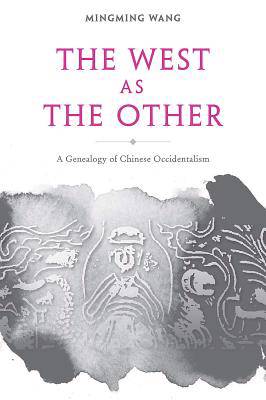
- Afhalen na 1 uur in een winkel met voorraad
- Gratis thuislevering in België vanaf € 30
- Ruim aanbod met 7 miljoen producten
- Afhalen na 1 uur in een winkel met voorraad
- Gratis thuislevering in België vanaf € 30
- Ruim aanbod met 7 miljoen producten
Zoeken
€ 64,95
+ 129 punten
Omschrijving
Long before the Europeans reached the east, the ancient Chinese had advanced their perspectives of the west. In this groundbreaking book, Wang explores a fascinating perspective of the Other. He locates the Other in the alternating directionologies of classical and imperial China, leading the reader into a long history of Chinese geo-cosmologies and world-scapes. In his analysis, Wang also delves into the historical records of Chinese "world activities," or the journeys from being the Central Kingdom to reaching to the "outer regions," separating the construction of illusory from realistic geographies while drawing attention to their interconnected natures. Wang challenges an extensive number of critical studies of Orientalist narratives (chiefly including Edward Said's Orientalism), and reframes such studies from the directionological perspectives of an "Oriental" civilization. He challenges the assumption that the Other must be understood in the sense that has been explained in general anthropology, crucially underlining the European foundations that have shaped its traditional interpretations.
Specificaties
Betrokkenen
- Auteur(s):
- Uitgeverij:
Inhoud
- Aantal bladzijden:
- 350
- Taal:
- Engels
Eigenschappen
- Productcode (EAN):
- 9789629964894
- Verschijningsdatum:
- 15/03/2013
- Uitvoering:
- Hardcover
- Formaat:
- Genaaid
- Afmetingen:
- 155 mm x 236 mm
- Gewicht:
- 739 g

Alleen bij Standaard Boekhandel
+ 129 punten op je klantenkaart van Standaard Boekhandel
Beoordelingen
We publiceren alleen reviews die voldoen aan de voorwaarden voor reviews. Bekijk onze voorwaarden voor reviews.











